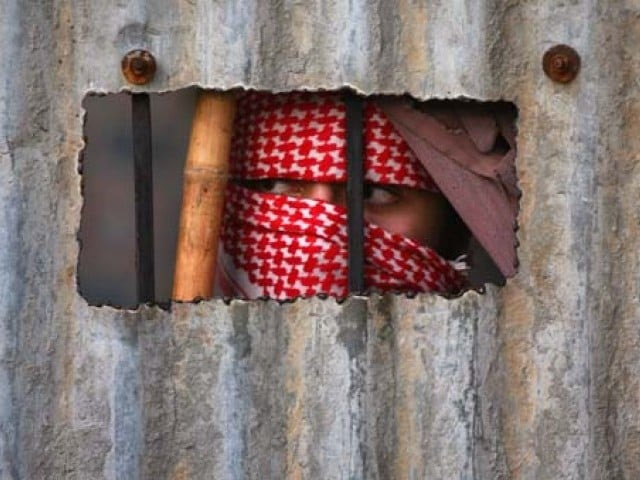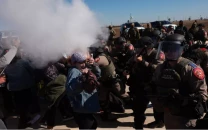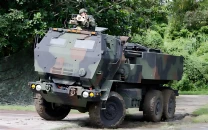US launches new push to secure Afghan peace talks
US seeks talks between Afghan government and Taliban.

Marc Grossman, President Barack Obama's special representative for Afghanistan and Pakistan, begins a diplomatic blitz this weekend that includes talks with Afghan President Hamid Karzai in Kabul and top officials in Turkey, Saudi Arabia and the United Arab Emirates.
In Kabul, Grossman will seek approval from Karzai – whose support has wavered for a US effort he fears will sideline his government - to move ahead with a series of good-faith measures seen as an essential precursor to negotiations that could give the Taliban a shared role in governing Afghanistan.
The goal is to move the talks beyond the current, mostly logistical discussions of mutual "confidence-building measures" between parties fighting on the battlefield.
"We are trying to get from conversations about confidence-building measures to negotiations between Afghans and the Taliban," said a senior administration official who spoke on condition of anonymity.
The diplomatic initiative, which includes a possible transfer of Taliban prisoners from Guantanamo prison, as Reuters first reported last month, has emerged as an increasingly important track of Obama's Afghan strategy.
Almost a year of behind-the-scenes efforts by US negotiators appear to be bearing initial fruit as the Taliban comes close to taking steps toward what US officials hope might become authentic talks on Afghanistan's political future.
Karzai's support would allow the administration to lock in a sequence of confidence-building measures that include the opening of the Taliban office, the transfer of senior Taliban prisoners from Guantanamo to detention in Qatar, and a Taliban statement distancing itself from terrorism and expressing willingness to take part in a political process.
The role of the sometimes mercurial Karzai is crucial because he has expressed doubts about how Washington has handled the negotiations and, senior US officials said, asked last December for a "pause" in the process.
A breakthrough would mark a milestone for the Obama administration, struggling to secure a modicum of stability in Afghanistan as it presses ahead with its gradual extrication from a long and costly war.
But US officials acknowledge that after months of tentative outreach, it remains unclear whether the Taliban is willing to enter full-fledged political negotiations with an Afghan government it sees as weak and illegitimate.
"There's another option: that they're not serious," a second senior administration official said. "We're eyes wide open about this."
While most foreign combat troops are slated to be gone from Afghanistan by 2015, the Taliban and its allies remain potent adversaries more than a decade after the Taliban government was ousted. Over 400 US soldiers were killed in Afghanistan in 2011, the second highest yearly total since the war began in 2001.
US officials said they believed the militant group, whose leaders are based over the porous border with Pakistan, were now more likely to strike a deal after a US troop increase that Washington credits with markedly weakening the Taliban's military power.
Keeping Kabul on board
Since November 2010, U.S. officials have held a series of meetings in Germany and Qatar with a Taliban representative named Tayeb Agha. Unlike past interlocutors, including one purported Taliban envoy who proved to be a fraud, Agha has proven himself a credible representative, the officials said.
"He has shown himself on a number of occasions to accurately reflect his leadership," one US official said.
US officials see nailing down the Taliban as just one half of their challenge. They will also have to secure sustained support from Karzai's government, which has complained repeatedly it has been marginalized in its own peace process.
Karzai has voiced support for US efforts in the talks. But he has pushed back on the US contention that the process is "Afghan-led" and his representatives have not been in the room when US officials have met with the Taliban.
Preferring a Taliban office to be located in Turkey or Saudi Arabia, Karzai recalled his ambassador to Qatar last month when the first report of a militant presence there surfaced.
He also asked for a pause in the process at an international meeting on Afghanistan in early December. "I think he realized he had some more work to do domestically," the first official said.
Officials acknowledged it had been necessary to proceed without Afghan government participation in meetings to date, largely because the Taliban had so far refused to meet with the Kabul government.
"Our job is to see if we can break through that door," the official said.
The surprise announcement from the Taliban this month it was ready to open a Qatar office - it has yet to do so officially – was seen in Washington as a sign of seriousness on the part of militants who may now be looking for a way out.
Friction abroad, friction at home
At the same time, the White House is bracing itself for political backlash on its plan.
Critics in Congress, especially Republicans, are already discussing tactics to block the possible transfer of the five former senior Taliban officials who have been held for years at Guantanamo Bay military prison in Cuba.
They include Mullah Mohammed Fazl, a former Taliban deputy minister of defense alleged to be responsible for the massacre of thousands of minority Shias; senior military commander Noorullah Noori; former deputy intelligence minister Abdul Haq Wasiq; and Khairullah Khairkhwa, a former interior minister.
Under current law, the administration must notify Congress 30 days ahead of time if it intends to transfer Guantanamo detainees to a third country and certify prisoners will not again threaten the United States. Some of the security conditions required for transfers can be waived, but how much flexibility the White House has is a subject of disagreement with Congress.
Officials said that if the good-faith measures went through, the detainees would be sent to Qatar, where they would be kept under "some kind of detention or restriction" designed to ensure they would not return to the battlefield. The Qatari prime minister was in Washington on Wednesday for talks with senior US officials.
"This is not about releases," the US official said. But whether the Taliban, which has demanded the return of detainees for years, would be satisfied by such a move is unclear.
Facing this array of obstacles, the Obama administration is seeking to temper expectations even as it enters what it hopes will be a pivotal period. "It might work; it might not," the official said.



















COMMENTS
Comments are moderated and generally will be posted if they are on-topic and not abusive.
For more information, please see our Comments FAQ